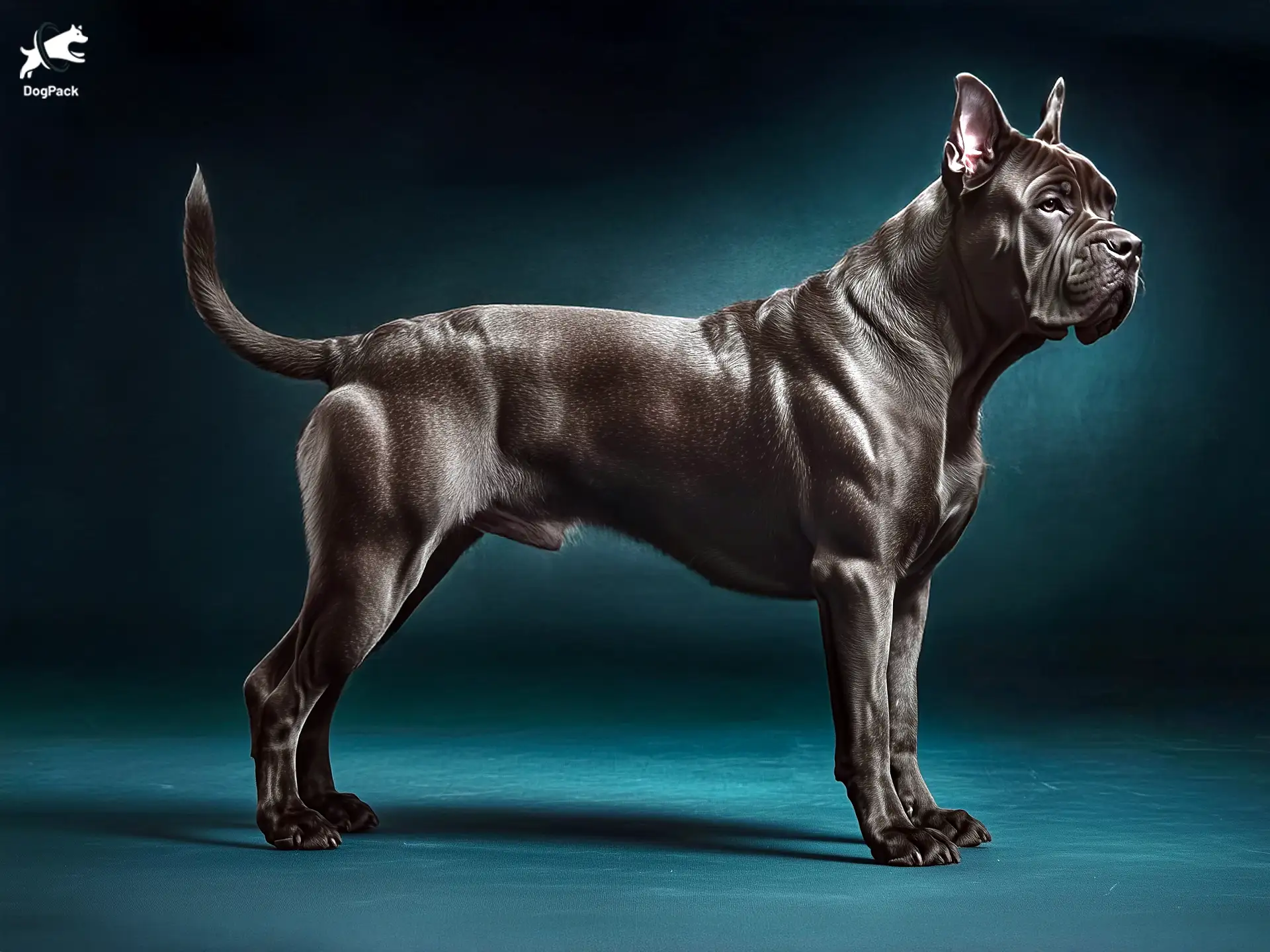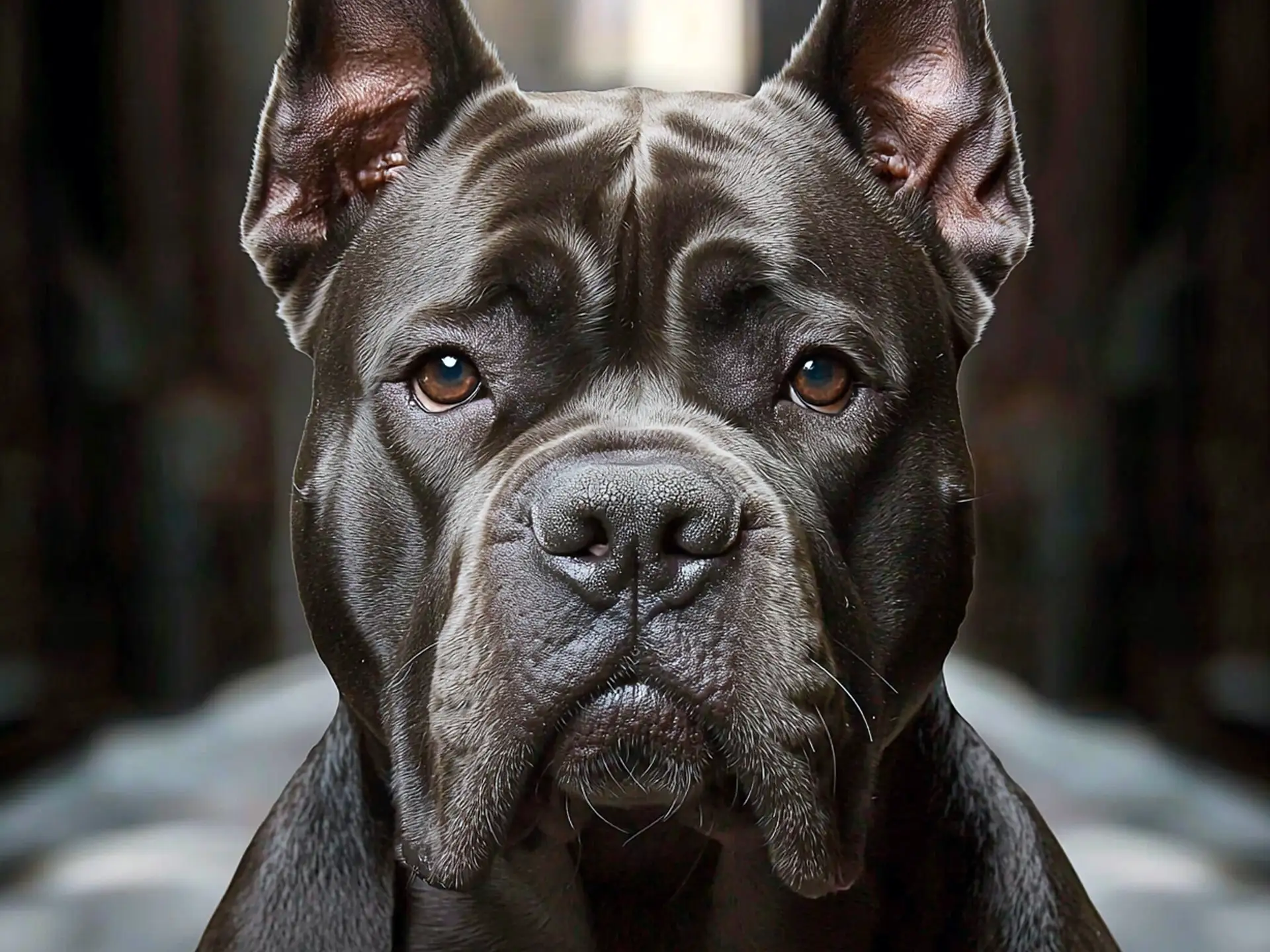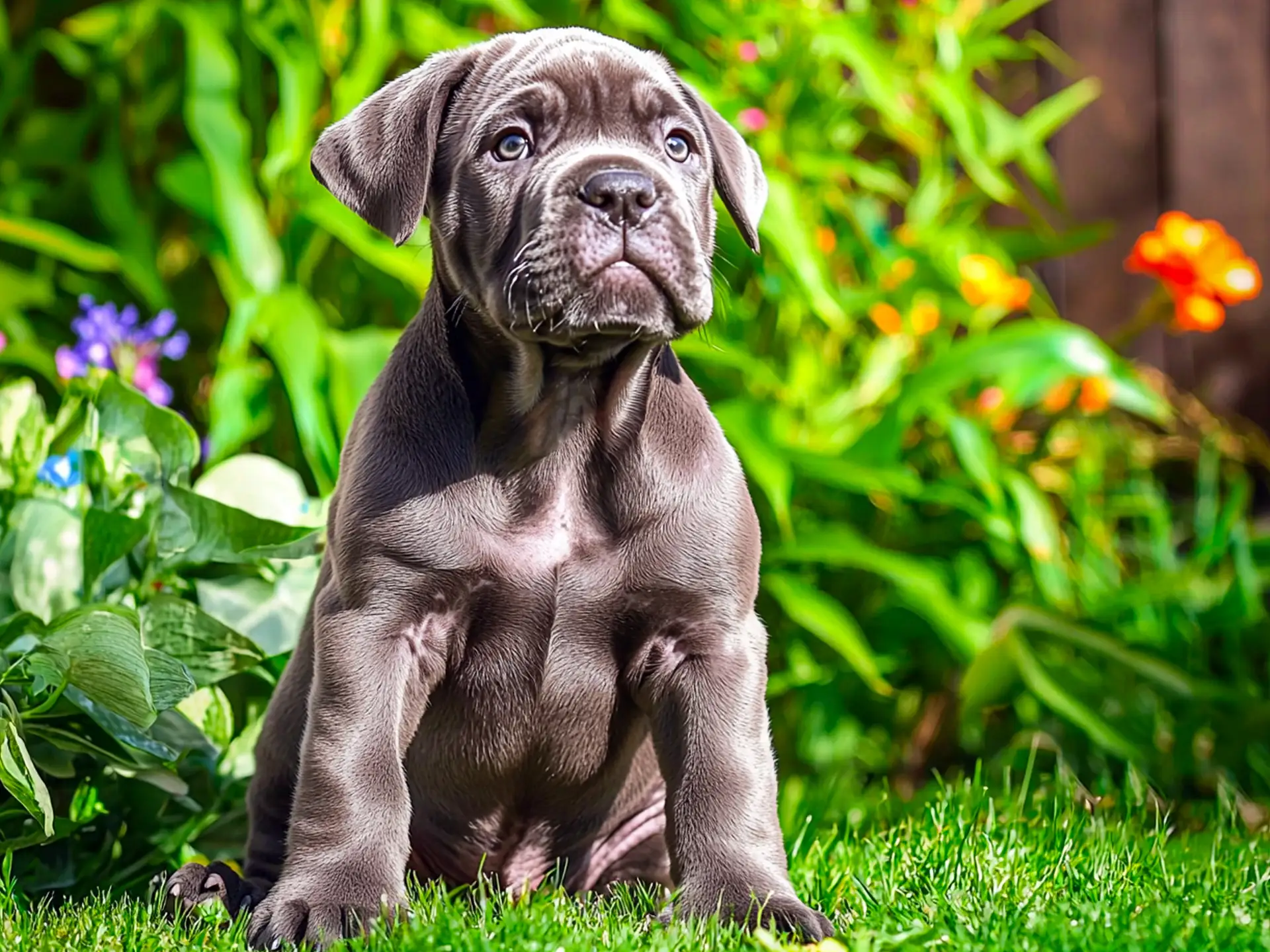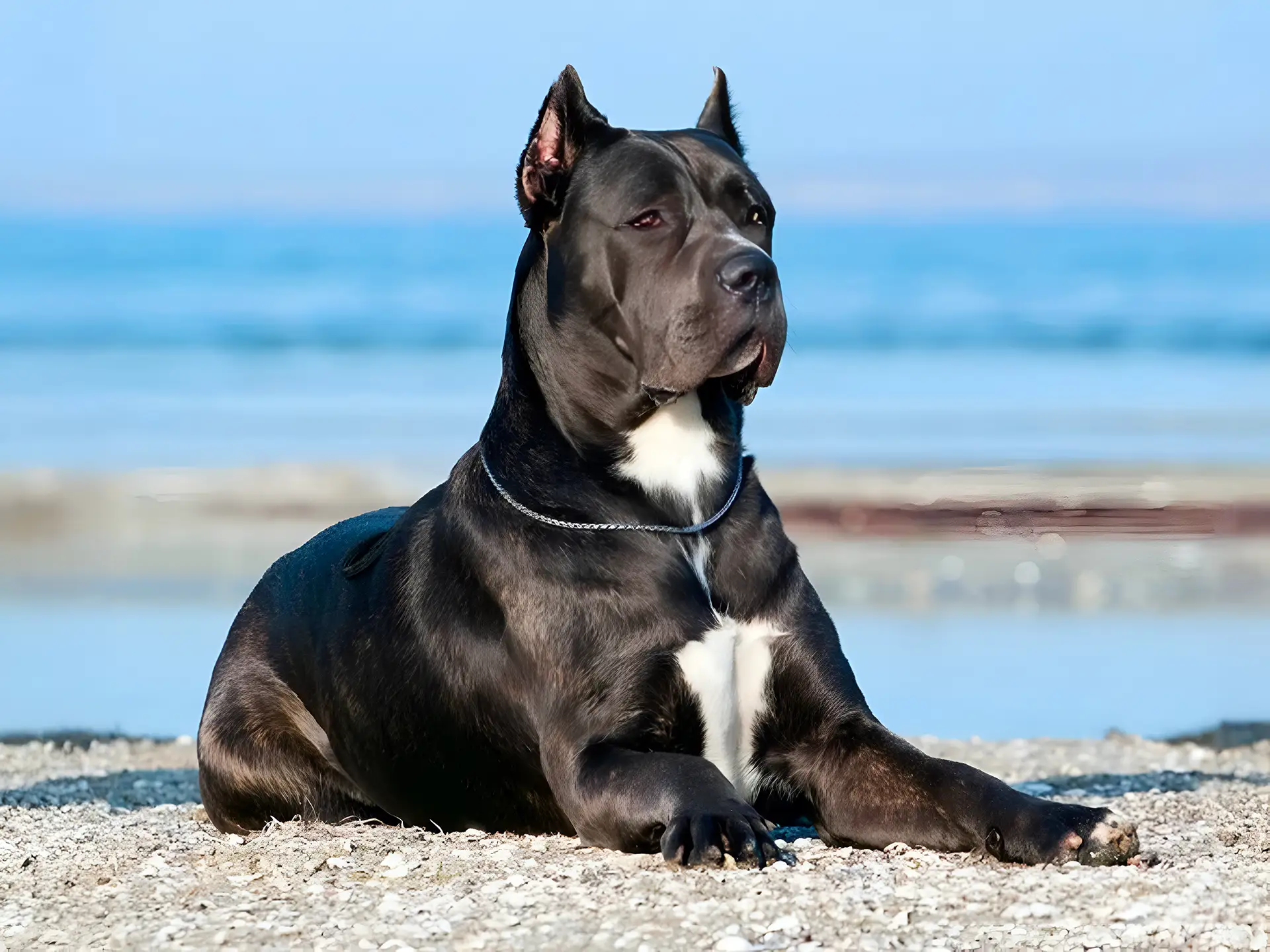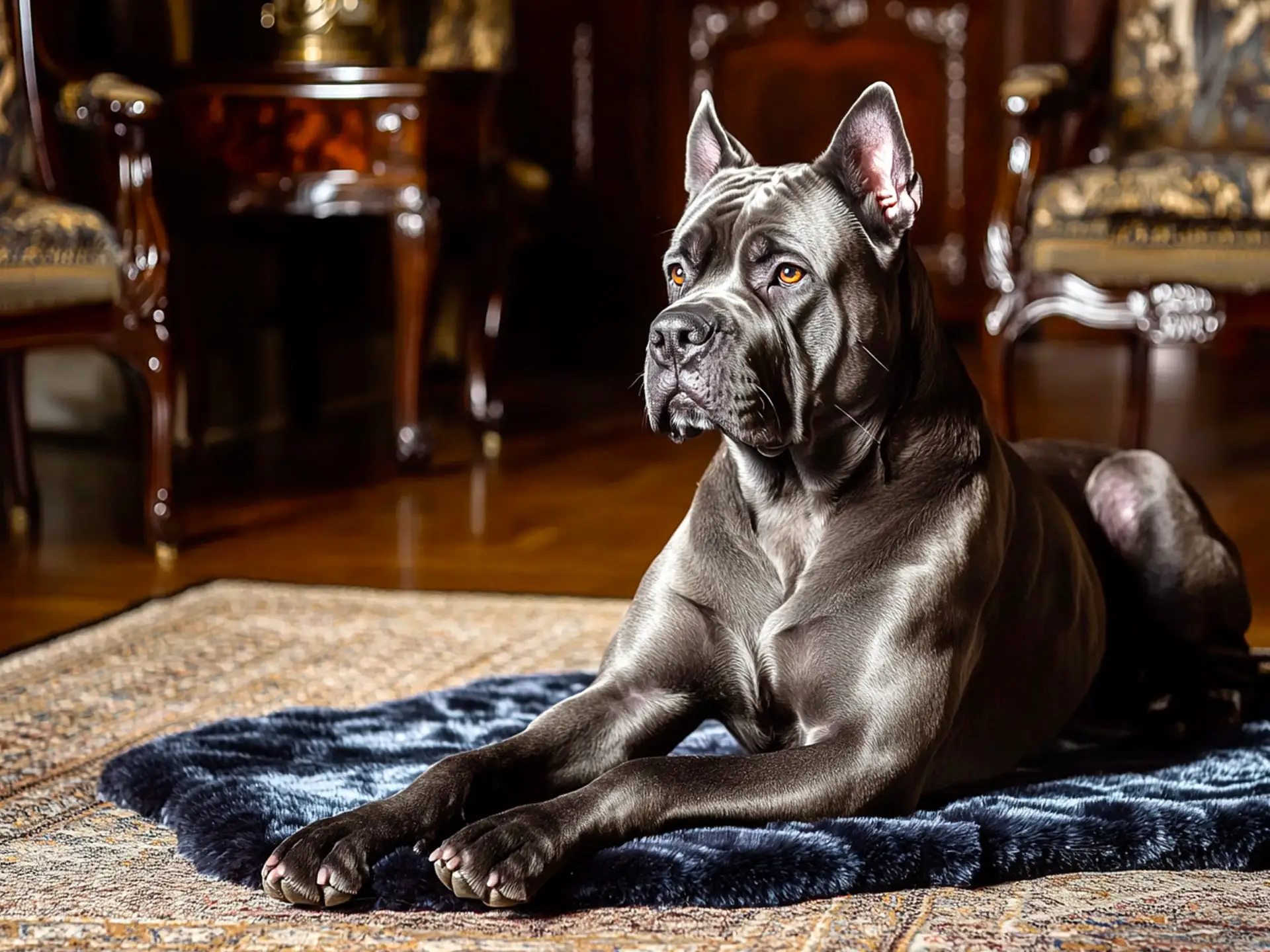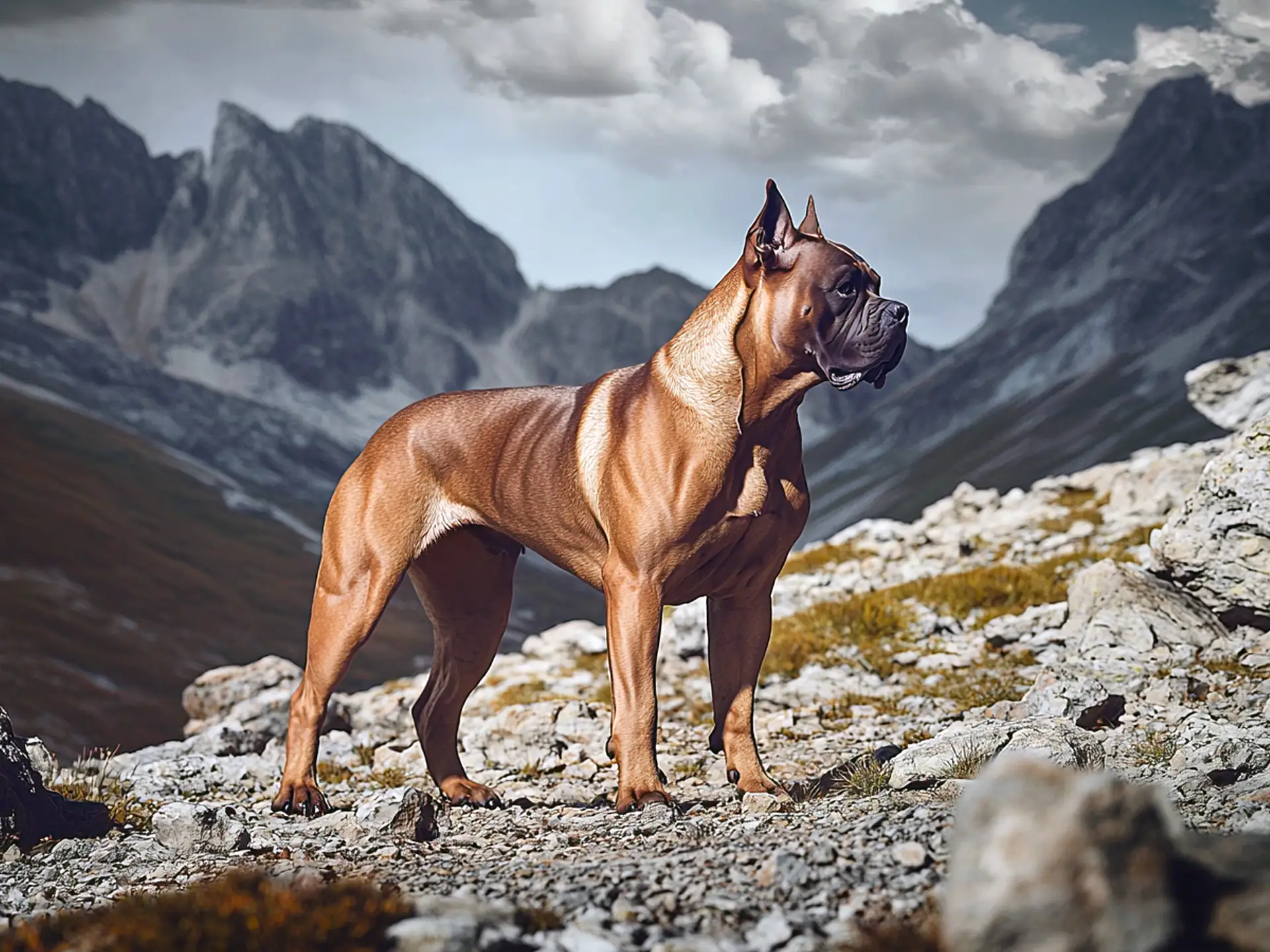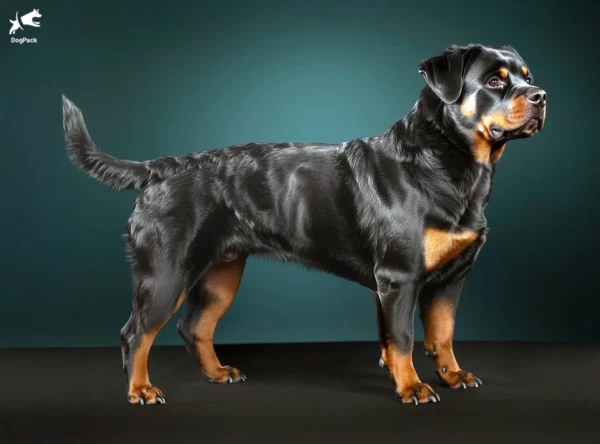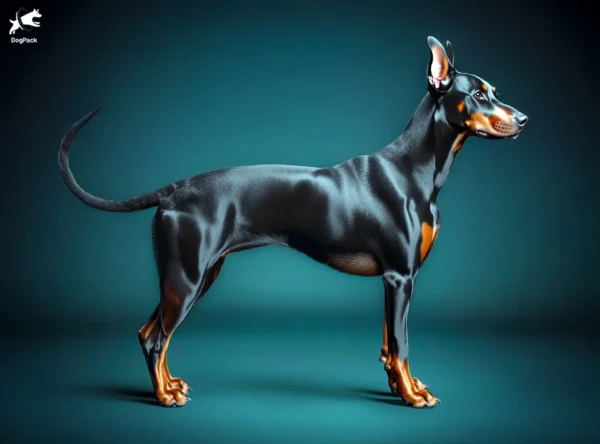Cane Corso Dog Breed Info & Overview
The Cane Corso is a powerful and majestic Italian breed, renowned for its intelligence, strength, and protective instincts. Originally bred for guarding and hunting, this large, muscular dog is a devoted companion for experienced owners. With the right training and socialization, the Cane Corso becomes a loyal family member and an impressive guardian, offering both affection and steadfast protection to those it loves.
Characteristics
Pictures
Breed History
The Cane Corso’s roots trace back to ancient Roman times, where they served as fearless war dogs and guardians. Their name derives from the Latin “Cohors,” meaning protector or guardian, reflecting their historical role. These dogs were highly valued for their strength and courage on the battlefield.
After the fall of the Roman Empire, the Cane Corso found new roles in rural Italy. They became versatile working dogs, assisting farmers with herding livestock and protecting property. Their ability to hunt large game like wild boar made them indispensable in agricultural communities.
By the mid-20th century, the breed faced decline due to industrialization and wars. Dedicated enthusiasts in the 1970s revived the Cane Corso, leading to official recognition by the Italian Kennel Club in 1994 and the American Kennel Club in 2010. Today, they are cherished for their loyalty and guarding abilities.
Temperament, Personality
The Cane Corso is known for its unwavering loyalty and protective instincts. They form strong bonds with their families and are naturally wary of strangers. Early socialization is essential to ensure they develop into well-mannered adults who can distinguish between friend and foe.
While affectionate with family members, including children, their large size and strength require supervision around smaller kids. The Cane Corso thrives on companionship and can become closely attached to their owners, often acting as a devoted shadow.
Intelligent and eager to please, they respond well to consistent and positive training methods. However, their assertive nature means they need confident leadership. The Cane Corso is best suited for experienced dog owners who can provide firm but loving guidance.
Physical Characteristics
The Cane Corso is a powerhouse of muscle and athleticism. Males stand 24 to 28 inches (61–71 cm) tall, with females slightly shorter. Weighing between 90 to 120 pounds (41–54 kg), they have a commanding presence that’s hard to ignore.
Their coat is short, dense, and coarse, coming in various colors like black, gray, fawn, and red. Some may display brindle patterns or small white markings. The coat provides minimal protection against extreme weather but requires low to moderate maintenance.
Distinctive features include a broad head with a square muzzle and expressive almond-shaped eyes. Traditionally, ears were cropped and tails docked, but many owners now prefer a natural look. The overall impression is one of strength, agility, and elegance.
Health Issues
Like all breeds, the Cane Corso is prone to certain health conditions. Hip dysplasia is a common concern due to their large size, potentially leading to mobility issues. Regular veterinary check-ups and maintaining a healthy weight can help mitigate this risk.
They may also be susceptible to eyelid abnormalities like entropion or ectropion, which can cause irritation. Heart conditions such as dilated cardiomyopathy have been reported in some lines. Responsible breeders conduct health screenings to reduce the incidence of genetic issues.
Bloat, or gastric torsion, is another serious condition affecting deep-chested breeds like the Cane Corso. Feeding them smaller, frequent meals and avoiding vigorous exercise after eating can help prevent this life-threatening problem.
Grooming Needs
The Cane Corso’s short coat is relatively low-maintenance, but regular grooming helps keep them looking their best. A weekly brush with a rubber curry brush or a grooming mitt removes loose hair and distributes natural oils, promoting a healthy shine.
During shedding seasons in spring and fall, more frequent brushing may be necessary to manage increased hair loss. Bathing should be done as needed, typically every few months, using a dog-specific shampoo to avoid skin irritation.
Don’t forget routine care like trimming nails every few weeks and cleaning their ears to prevent infections. Dental hygiene is also important; regular brushing can help prevent tartar buildup and keep their teeth and gums healthy.
Exercise Requirements
An active and intelligent breed, the Cane Corso requires ample exercise to stay happy and healthy. Aim for at least 1–2 hours of physical activity per day, which can include walks, playtime, and mental stimulation through training or puzzle toys.
They excel in activities like obedience, agility, and tracking, which not only provide exercise but also strengthen the bond with their owner. The Cane Corso enjoys having a job to do, so engaging them in tasks taps into their working heritage.
Without sufficient exercise and mental stimulation, they may become bored and develop undesirable behaviors. A securely fenced yard provides space for them to roam, but they should not be left alone outside for extended periods.
Training Tips
Training a Cane Corso requires consistency, patience, and a firm but positive approach. Early socialization is crucial to expose them to different people, animals, and environments, helping them become well-adjusted adults.
Use reward-based training methods, as they respond best to praise and treats. Harsh corrections can damage their trust and may lead to resistance. Establishing yourself as a confident leader will help manage their assertive tendencies.
Enroll in obedience classes to provide structure and professional guidance. Ongoing training throughout their life keeps their mind sharp and reinforces good behavior. Remember, a well-trained Cane Corso is a joy to live with and a testament to responsible ownership.
Nutrition, Diet
Feeding a Cane Corso requires attention to quality and quantity to support their large, muscular build. High-quality dog food formulated for large breeds is essential, providing the necessary nutrients for their energy levels and growth.
Puppies need a diet that supports steady growth without promoting rapid weight gain, which can stress developing joints. Consult your veterinarian for personalized feeding recommendations based on age, weight, and activity level.
Adult Cane Corsos typically consume 4–5 cups of food per day, divided into two meals to reduce the risk of bloat. Monitor their weight and adjust portions as needed to maintain a lean physique. Avoid overfeeding and excessive treats to prevent obesity.
Adoption, Breeders
If you’re considering adding a Cane Corso to your family, research is key. Reputable breeders conduct health screenings and prioritize temperament. Visit the Cane Corso Association of America for breeder referrals and breed-specific information.
Adoption is another wonderful option. Organizations like Big Dog Ranch Rescue often have Cane Corsos or mixes available. Rescue dogs can make excellent companions and offer the chance to provide a loving home to a dog in need.
Avoid purchasing from pet stores or online sellers who may support puppy mills. Always ask for health certificates, meet the puppy’s parents if possible, and ensure the breeder or rescue organization is trustworthy and transparent.
Family Pet?
The Cane Corso can be a devoted family pet for households that understand their needs. They are affectionate with family members and can be good with children when properly trained and socialized. However, due to their size and strength, supervision around small kids is essential.
They may not be the best choice for homes with small pets like cats or rabbits, as their prey drive can be strong. Early exposure and training can help, but caution is advised. The Cane Corso’s protective instincts make them excellent watchdogs.
Their need for companionship means they shouldn’t be left alone for long periods. A family that includes them in daily activities and provides mental and physical stimulation will find the Cane Corso to be a loyal and loving addition.
Right For You?
Deciding if a Cane Corso is right for you involves honest assessment. They require experienced ownership, ample space, and a commitment to training and socialization. If you’re looking for a gentle giant with protective instincts and have the time to dedicate, they might be a perfect match.
Consider your lifestyle—active individuals who can meet their exercise needs will thrive with this breed. If you have young children or lack experience with large, assertive dogs, you may want to explore other options.
Remember, owning a Cane Corso is a long-term commitment. They will reward dedicated owners with unwavering loyalty and companionship. Take the time to evaluate if you can provide the environment they need to flourish.
Conclusion
The Cane Corso is a remarkable breed, embodying strength, loyalty, and intelligence. They make devoted companions for those who can meet their needs and appreciate their protective nature. With proper training, socialization, and care, the Cane Corso can be a beloved member of the family and a steadfast guardian.
FAQs
-
How do Black Mouth Curs handle long periods alone?
Black Mouth Curs can become anxious or destructive if left alone for long periods. They thrive on interaction and need mental stimulation to avoid boredom, making them better suited for active households.
-
Are Black Mouth Curs easy to train?
Yes, Black Mouth Curs are highly intelligent and eager to please, making them relatively easy to train. Consistency and positive reinforcement work best to harness their natural instincts.
-
How well do Black Mouth Curs adapt to colder climates?
Although Black Mouth Curs have short coats, they can adapt to cooler weather with proper care. However, extreme cold may require extra precautions like providing a warm shelter during harsh winters.
-
Can Black Mouth Curs live in apartments?
Black Mouth Curs are not well-suited for apartment living due to their high energy levels. They need plenty of space to run and engage in physical activities, making a larger home with outdoor access ideal.
-
Are Black Mouth Curs good with children?
Yes, Black Mouth Curs are known to be loyal and protective, making them great companions for families with children. However, supervision and proper training are essential, especially with younger kids.
Breed Ratings
The Cane Corso is highly intelligent and quick to learn, making training enjoyable with the right approach.
They enjoy playtime but are generally more serious in nature, preferring purposeful activities over frivolous games.
With a moderate to high energy level, they require daily exercise to stay content and prevent boredom.
Shedding is moderate; regular brushing helps manage loose hair and keep their coat healthy.
They have a strong prey drive, a remnant of their hunting past, which may require management around small animals.
Grooming needs are low to moderate, with a short coat that’s easy to maintain with weekly brushing.
Intelligent and eager to please, they train well with consistent, positive methods and confident leadership.
They prefer companionship and may develop separation anxiety if left alone for long periods.
Generally quiet, they will bark to alert their owners but are not excessive barkers.
Moderate droolers, especially after eating or drinking, due to their jowls.
Can be friendly with other dogs if well-socialized but may exhibit dominance without proper training.
Generally healthy with proper care but prone to certain conditions like hip dysplasia and heart issues.

